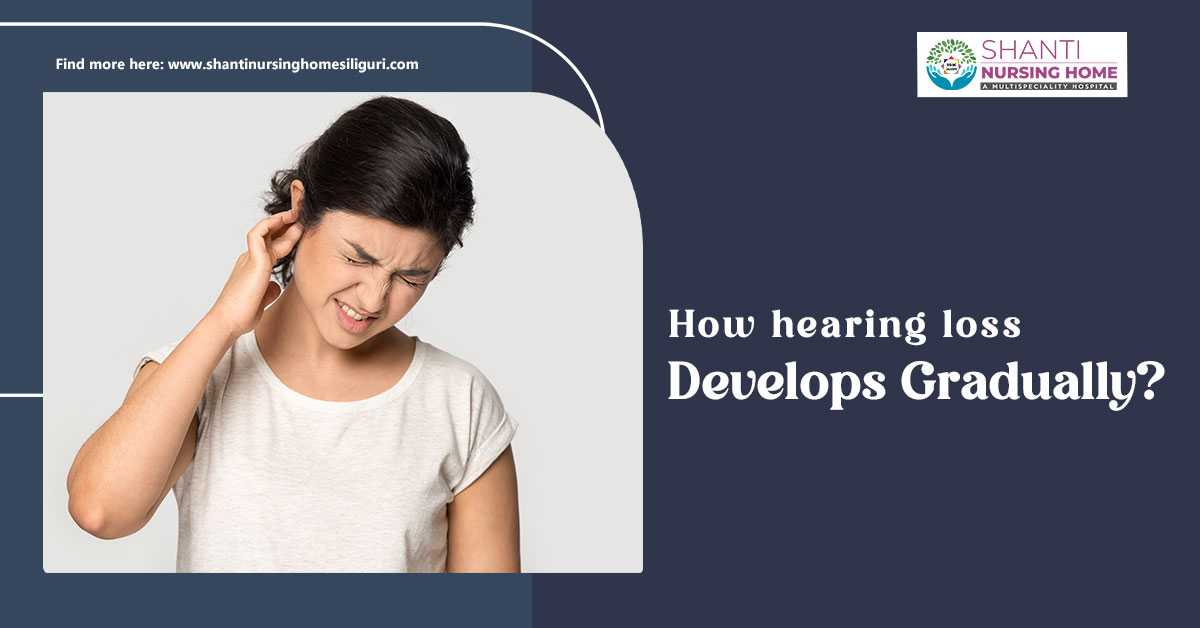If you or a family member struggles with chronic sinus pain, sore throats, hearing loss, or ear infections, it might be time to see a specialist. Finding the right ENT treatment in Siliguri can help you get lasting relief, proper diagnosis, and the right care for your ear, nose, and throat problems.
Choosing the right doctor can feel confusing, but this guide will make it easy. We’ll walk through what an ENT does, when you should see one, and how to choose the best specialist for your needs.
What does an ENT Do?
ENT stands for Ear, Nose, and Throat—but it’s more than just those three parts. These specialists, also known as otolaryngologists, are trained to treat problems related to the head, neck, sinuses, ears, voice, and even balance.
If you’ve ever wondered why you might be referred to an ENT, here’s a simple way to look at it:
They handle everything that helps you breathe, hear, smell, swallow, and speak properly.
Here are some of the areas an ENT treats:
-
Ear conditions: Ear infections, hearing loss, tinnitus (ringing in the ears), balance problems, and earwax buildup.
-
Nose and sinus issues: Allergies, sinusitis, nasal obstruction, and breathing difficulties.
-
Throat concerns: Tonsillitis, voice problems, swallowing difficulties, or sore throats that keep coming back.
-
Head and neck: Thyroid nodules, enlarged lymph nodes, or lumps that need evaluation.
An ENT helps identify what’s behind chronic symptoms that your general doctor might not be able to resolve. They combine medical and, when needed, surgical expertise to improve your overall comfort and health.
How to Choose the Right ENT?
Finding the right ENT isn’t just about picking the nearest clinic. It’s about finding someone you trust, understand, and feel comfortable with. Here’s how you can do that.
Look for experience and qualifications
Start with the basics. A qualified ENT doctor should have specialized training in otolaryngology. Experience matters - especially if you’re dealing with recurring or complicated issues like chronic sinus infections or hearing loss.
When you contact the clinic, don’t hesitate to ask how long they’ve been practicing and if they’ve treated similar cases before.
Consider their specialization
Some ENTs focus more on children, while others specialize in hearing, sinus surgery, or voice disorders. Choose one whose experience aligns with your symptoms. For example, if your child gets ear infections often, look for a doctor experienced in pediatric ENT care.
Pay attention to how they communicate
During your first consultation, notice how the doctor interacts with you. Do they listen carefully? Do they explain things in simple language?
A good ENT makes sure you understand what’s happening without overwhelming you with medical terms. You should walk out feeling informed, not confused.
Check convenience and accessibility
Location, appointment timing, and availability are practical but important. If you’re dealing with chronic issues that may require regular visits, you’ll want a clinic that’s easy to reach and responsive to scheduling needs.
Read genuine reviews and recommendations
Online reviews and word-of-mouth feedback can reveal a lot about a doctor’s bedside manner and professionalism. While reviews shouldn’t be your only deciding factor, they help you set expectations about how the clinic handles patients.
Trust your comfort level
Sometimes, your gut feeling matters most. If something feels off—if the doctor seems rushed, dismissive, or hard to talk to—it’s okay to look elsewhere. The right ENT should make you feel comfortable, heard, and confident about your treatment plan.
When to See an ENT Doctor?
You don’t have to wait until things get serious to see an ENT. In fact, catching problems early can prevent bigger health issues later. Here are some signs that it might be time to book an appointment.
Persistent ear issues
If you’ve had ear pain, fullness, or hearing loss that lasts more than a few days, it’s worth getting checked. Recurrent ear infections or ringing in the ears (tinnitus) are also strong reasons to see an ENT.
Constant nasal congestion or sinus pressure
Do you feel like you have a “permanent cold”? Chronic nasal blockage, facial pain, or pressure around your eyes may indicate sinusitis or allergies that need expert care. ENTs can help pinpoint the cause and offer targeted treatment instead of temporary relief.
Frequent sore throats or voice problems
If you often lose your voice, have ongoing throat pain, or find swallowing difficult, an ENT can check if there’s an underlying infection, acid reflux issue, or a vocal cord concern.
Snoring and sleep problems
Loud snoring or breathing interruptions during sleep could be linked to issues in your nose or throat, such as enlarged tonsils or nasal blockages. ENTs often help diagnose and manage sleep apnea and similar conditions.
Dizziness or balance issues
Your ears play a big role in balance. If you experience frequent dizziness or a spinning sensation, it could be related to an inner ear problem that needs professional attention.
Lumps or swelling in the neck
Any unexplained swelling, lump, or persistent hoarseness should be evaluated by an ENT, as these could be early signs of something that needs timely treatment.
In general, if you’ve tried home remedies or general medicines without lasting relief, it’s time to see a specialist. ENTs have the tools and experience to find the root cause rather than just treat symptoms.
What is the Most Common ENT Problem?
Among all ENT issues, sinusitis (inflammation of the sinuses) is one of the most common. Millions of people experience it every year, often mistaking it for a cold that doesn’t go away.
Symptoms of sinusitis of ENT Problems:
-
A blocked or runny nose
-
Pressure or pain in the forehead, cheeks, or around the eyes
-
Headaches that get worse when you bend forward
-
Thick nasal discharge
-
Loss of smell or taste
-
Fatigue and post-nasal drip (mucus dripping down the throat)
Other common ENT problems:
-
Ear infections, especially in children
-
Hearing loss due to wax buildup or nerve issues
-
Tonsillitis, causing repeated sore throats
-
Voice strain or hoarseness, often from overuse or reflux
The key takeaway is this: if something related to your ears, nose, or throat keeps returning or affecting your quality of life, it’s not “just a small issue.” The sooner it’s checked, the easier and faster it usually is to treat.
Final Thoughts
Choosing the right ENT specialist isn’t complicated; it’s about finding someone you can trust, who listens, explains clearly, and truly cares. If you’re seeking reliable ENT treatment in Siliguri, visit Shanti Nursing Home for expert care that helps you breathe easier, hear better, and live more comfortably.




